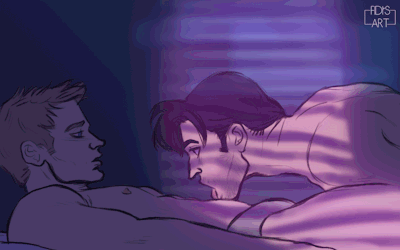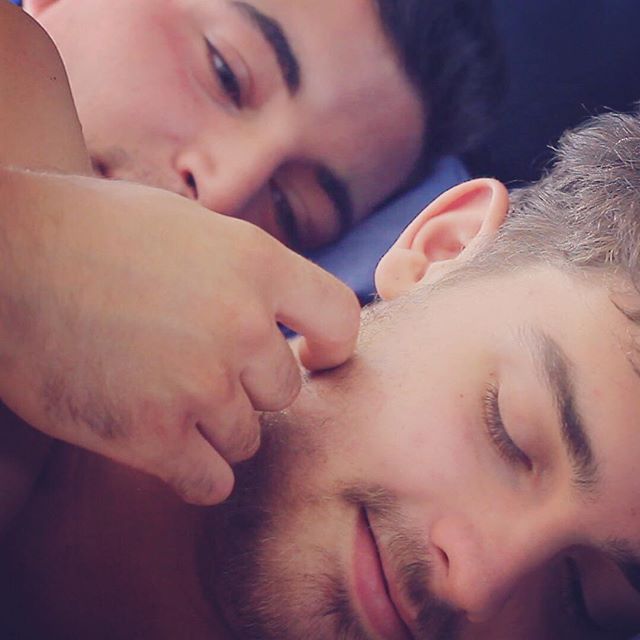Flep has a great job as a New York City production designer, a blossoming relationship with Torin, and the potential joy of becoming a stepparent to Torin’s two young daughters. Nothing could be better—yet his life is crumbling from the inside out.
Ever since moving in with Torin, Flep has dreamed of muddy trenches, bullet-riddled bodies, and endless horrors which only grow worse and spill into his day-to-day life. Traumatized and sleepless, he slogs on: a soldier afflicted with post-traumatic stress. Only, Flep has never been a soldier, let alone been to war.¬
Fighting for his sanity, Flep turns to unlikely sources for help—even phantoms from another era. It could take a family from 1916 to illuminate his waking nightmares, but the truth may come at the price of losing his new family along the way.
This was a difficult read for me. I struggled to get through it. I considered not finishing it, but I was determined to understand where the author was taking me.
I am still not sure. People who enjoy this sort of reincarnation, past-life, fiction may enjoy this story, but it did not work for me. It was very dry. There seemed to be a lot of unnecessary scenes that could have been tightened up, and I just did not understand the relationship between the two main characters.
I most enjoyed the interactions between the kids and Flep as he tried to become part of this blended family. I felt that this was the strongest relationship building out of the entire story, and that made me sad. I actually found zero redeeming qualities in Torin. Married to his work, unwilling to support anyone, and somehow made the children’s need for a more stable household, an attack on him. I found his self-centred nature offputting, and I sort of wanted Flep to find someone else.
The flashbacks were long and tedious. There was nothing interesting about them. Add to the fact that Flep has no idea what is happening, and tends to walk around like a zombie, and this story was slow, exhausting, and depressing. I wouldn’t have been surprised if Flep went crazy, tried to kill himself, or stepped in front of a bus. I felt that would have been a small mercy for him, and would have willingly accept that as the ending.
Character development was poor, and I didn’t get a good idea of who Flep really was. Beyond the bizarre past life stuff, his personality was absent. I wanted to like him, but I didn’t know him. He was boring, his reactions were boring, and the only time I saw a glimpse of him was when he was interacting with the children.
I should have left this as a DNF, to be perfectly honest. While the ending gave a resolution, it wasn’t enough for me to feel like the journey was worth it. As such, I cannot recommend this to anyone.
For more info on Goodreads
More information on The Places We Say Goodbye and author:
Purchase Links:
NineStar Press: http://ninestarpress.com/product/the-places-we-say-goodbye/
Author Bio
Jordan Taylor is the author of numerous novels and stories from the bestselling Angel Paws shorts to the historical fantasy series
Lightfall. An avid reader and writer, Jordan also enjoys photography and graphic design, old bookstores, researching World War One, travel, and tweeting about her smooth fox terrier.
Website:
www.jordantaylorbooks.com
Twitter: @JordanTaylorLit
Excerpt
Jordan Taylor © 2016
All Rights Reserved
Monday, June 27
A dirt road stretched away, straight and flat, as far as I could see. I stood, then walked. Maybe I was walking all along, but didn’t feel like I had moved.
A dozen horses lay along the road. Fat, white maggots emerged from their nostrils and eye sockets, wriggling over dark fur. Abdomens bulged, grossly distended below summer sun.
A man stepped up to me. Rows of men behind. Packs on their backs and rifles in their hands. Sunlight flashing off steel helmets. This man had a mustache and never glanced at the animals along the road.
“There’s a farm ahead, sir. I’ll have the lads check for a pump.”
Then, in a gloomy building at night. Dust thick on the floor. Men talked around me. I was apart, away from them, beside only one other.
My companion tried to tell me something important. Like with the water pump man, I could not listen. He read from a notebook in his hand.
How could he ask my opinion on poetry? While maggots flopped and convulsed down sunken faces—so crowded, they forced each other out? While the young man in the corner scratched his own head until his fingers were bloody? While another sang about ghost horses as he smoked one cigarette after the next, lighting one with the butt of the last?
Still reading to me, insistent. He jabbed his finger at a page.
I wanted to shoot him. I scrambled to my feet. I said I had to write a postcard.
Then I stood in a river of mud, legs braced, shouting, “Get out of there, Attwater!”
I couldn’t see him, couldn’t feel him, and couldn’t get away myself. Scorching metal flew past my face.
“Attwater!” Panic and mud sucked me back into that dark river.
I woke with a jolt, shivering and disoriented.
The TV plays a cooking competition show. Both girls riveted.
10:00 p.m. and I sit at the kitchen table, laptop open—working. Asleep sitting up. Fresh anxiety that the girls are not in bed. Then remember: Torin asked me to bring them to the restaurant tonight.
I open my mouth to tell Isabelle and Carine they can get ready to go. Parting my lips, I see flopping maggots—bloated like slugs—almost tasting them. I must shut both mouth and eyes for several minutes.
Hands shake on my keyboard. Still nauseated when I inform them we can go.
Only a dream. Only a dream. I wonder if I am trying to reassure—or trying to convince myself.

















































